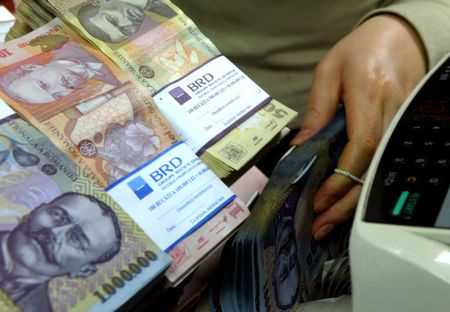By Jesus Calero and Vera Dvorakova
(Reuters) -Sweden’s engineering giants are feeling the strain as currency swings and uncertainty around tariffs weigh on their profits, second-quarter earnings from some of the region’s biggest industrial players showed.
At first glance, activity levels remained healthy, but a weaker U.S. dollar impacted companies this quarter, chipping away at profits even for companies with solid order books and global footprints.
Shares in Epiroc dropped 5.5%, hitting the bottom of the pan-European STOXX 600 index on Friday, after the mining equipment maker missed expectations. Weak demand and pressure on its construction unit outweighed efforts by the company to improve efficiency.
Miner Boliden also saw its earnings fall short of expectations, as the weakening U.S. dollar had a greater impact than anticipated.
Boliden’s results served as a stark reminder of how much the dollar matters in export-heavy Scandinavia.
Metals sold by the Swedish miner are priced in U.S. dollars, which means that when the dollar is weak the sales value of its products falls when converted back into Swedish crowns.
While demand for minerals and industrial components is still high, companies like SKF and Trelleborg say that more clients are holding off on non-essential purchases or phasing out investments due to the tariff uncertainty.
SKF beat estimates this quarter, but noted a currency headwind impacting earnings.
Atlas Copco reported a lower order intake due to a negative currency effect. Its shares fell nearly 10% on Friday, marking their worst day of trading in nine years.
Trelleborg missed market forecasts for second-quarter core earnings on Thursday. It warned U.S. President Donald Trump’s trade war was making customers cautious about placing new orders.
Companies’ profit margins are so far holding firm, largely due to efforts to save money, keep prices higher and cut jobs, but its uncertain how long those efficiency drives will work as foreign exchange and cost rises eat into profits, analysts say.
(Reporting by Jesus Calero, Izabela Niemiec and Vera Dvorakova; Editing by Matt Scuffham)










